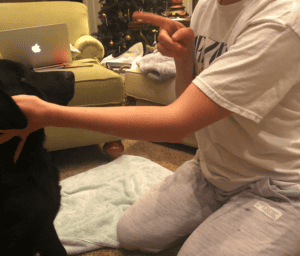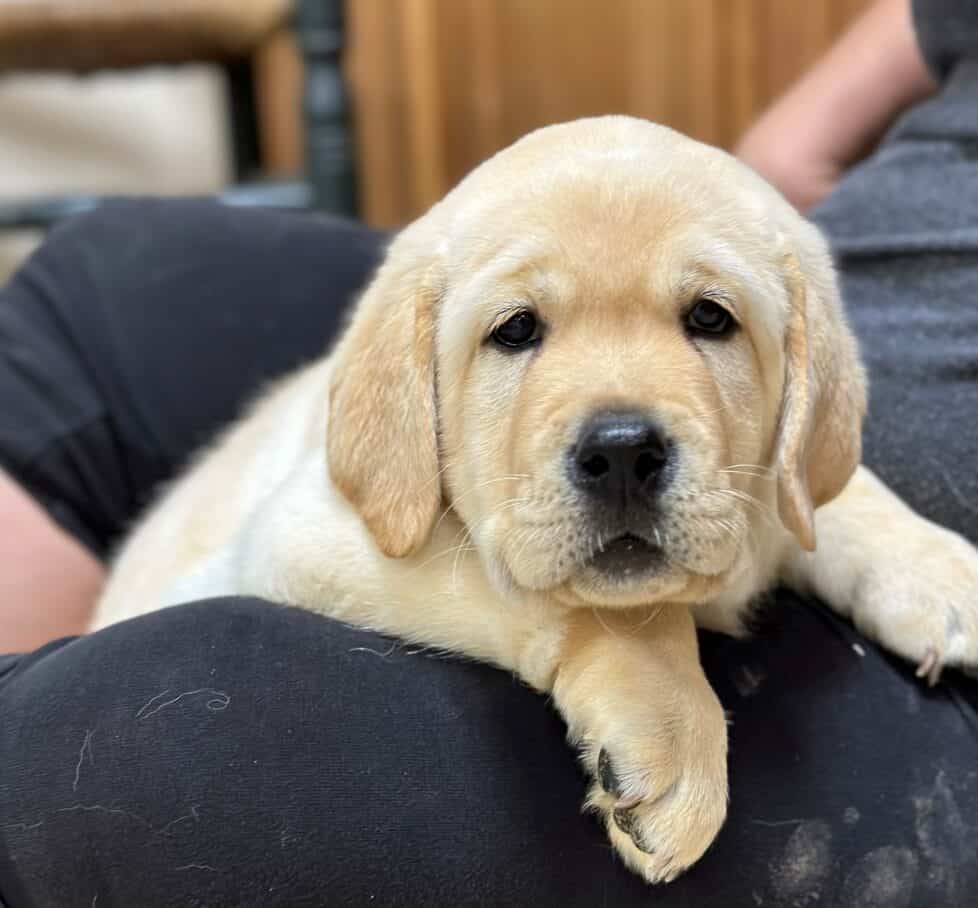DOES MY LAB FEEL GUILT WHEN I CORRECT THEM?
I was so surprised the other day when my puppy had made yet another puddle (new to housetraining) and I told her ‘no no’ and wagged her finger at her. Her response was a sit down and hang her head. She may not have been feeling guilty but she certainly looked as though she was! So what’s going on?
Here, she is most likely reacting to your body language and the disapproving sound in your voice. It’s unlikely that guilt came into it, in fact, unless you actually caught her in the act of making the ‘puppy puddle,’ she would’ve already forgotten about it. This is a very important factor to take into account when you’re training puppies and considering their attention span and how long they remember things you correct them on. Less than 30-60 seconds.
Dogs seem to associate only very immediate consequences with their acts, even something that happened just a minute or two ago won’t be connected to their brain with any correction, as their mind may have moved on to new squirrels and toys!
Times before correcting I will pause and look for a reason as to ‘why did my puppy made a public puddle in the house?” was it me??… Perhaps she was left too long, or chewed the book because she was teething and didn’t have anything else to chew… I usually blame myself first. I go through the timing of when she last went out and when I watered last, and all those kinds of things before I make corrections.

If I feel like the deed has been done too far between when I make the correction, I will not give them a lot of extra attention but I will wait to give them lots of attention until I have the opportunity to correct them and have sucess. It’s also a reason why trainers suggest that you correct undesirable actions only as they take place and immediately, and always with distraction and positive reinforcement, not punishment.
The old, nasty custom of rubbing your dog’s nose in their mess is just not the way to do it, not very kind, and pointless, because the puppy doesn’t understand anything the owner is saying if it’s something that has happened a while ago. But if you caught her in the act and made a stern correction, that’s perfect! Two of those and you may be done!
Dogs, like all species who live socially, humans included, have safety as their priority and built into them by nature. So they have sort of an evolved, yet sophisticated sign language to let those around them know that they themselves do not pose a threat. An extreme example would involve a dog lying on its back exposing its stomach. Message: I pose no threat, I am making myself vulnerable to you. And a more everyday context, and maybe a more annoyed– voice and raised finger, your puppy or a dog
may decide to lower their head, averting a direct gaze at you which they don’t naturally do at first until they feel really comfortable with you anyway. I don’t generally stare at my dogs either as that seems like a threat, and don’t want to scare them. or


